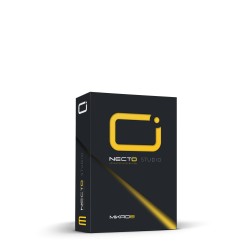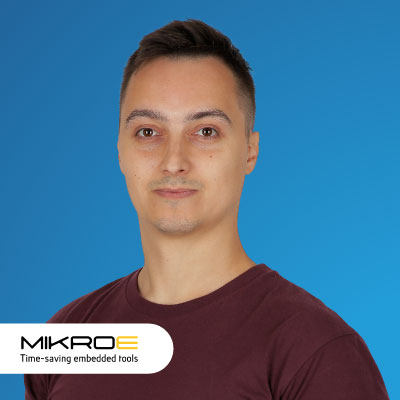Make the Move from MikroC PRO to NECTO Studio
This webinar walks you through the complete process of transitioning existing MikroC PRO projects into the modern NECTO Studio environment. It explains how NECTO’s SDK-based modular architecture differs from static libraries, what to prepare before migration, and how to properly organize and import your projects. You’ll gain a clear understanding of how NECTO handles dependencies, board definitions, project structures, and toolchain configuration so that your applications can run smoothly on the new platform.
The session demonstrates real migration workflows - from converting project settings to resolving compatibility issues and validating functionality on hardware. You’ll see hands-on examples such as moving an LED blinking project and a FAT16 file system project into NECTO, along with practical debugging and testing techniques. By the end, you’ll know exactly how to modernize your workflow, streamline development, and take full advantage of NECTO Studio’s faster, more flexible development ecosystem.
Featured Products:
You Will Learn:
- Preparing your mikroC PRO projects for migration by backing up and organizing files.
- Step-by-step migration workflows.
- Understanding NECTO Studio’s SDK-based modular architecture and how it differs from static libraries in mikroC PRO.
- Addressing dependencies and configuring projects to align with NECTO Studio.
- Testing and refining projects to ensure functionality and compatibility post-migration.
Agenda:
11:00 - 11:05 (EDT)
Welcome and Brief Introduction
The advantages of migrating to NECTO Studio for embedded development.
11:05 - 11:10 (EDT)
Preparing for Migration
Backing-up and importing projects into NECTO Studio.
11:10 - 11:20 (EDT)
Hands-On Migration Demonstration
Converting project configurations.
Handling dependencies and libraries.
Testing project functionality and resolving compatibility issues.
11:20 - 11:45 (EDT)
Live Examples
Practical examples of iterative debugging and enhancement.
Migrating an LED Blinking project and a FAT16 file system project.
Using NECTO Studio’s debugging and testing tools effectively.
11:45 - 12:00 (EDT)
Q&A Session
Address your challenges, share ideas, and gain expert insights into the migration process.
NECTO Studio Webinar Host
Branko Jaksic -
Creative Roads Manager, MIKROE
Branko spent four years working on the development of NECTO Studio, gaining an in-depth understanding of its advantages and challenges. He then transitioned to the marketing department, where he focuses on helping engineers better understand NECTO Studio and showcasing its full potential.
ABOUT NECTO
NECTO Studio is a complete, cross-platform integrated development environment (IDE) for embedded applications providing everything necessary to start developing, and prototyping, including Click board applications and GUIs for embedded devices. Rapid software development is easily achieved as developers do not need to consider low-level code, freeing them up to focus on the application code itself. This means that changing the MCU or even the whole platform will not require developers to redevelop their code for the new MCU or platform. They can simply switch to the desired platform, apply the correct board definition file, and the application code will continue to run after a single compiling.
ABOUT MIKROE
MIKROE is committed to changing the embedded electronics industry through the use of time-saving industry-standard hardware and software solutions. With unique concepts like Remote Access, One New Product/Day, Multi-Architectural IDE and most recently, the EmbeddedWiki™ platform with more than million ready-for-use projects, MIKROE combines its dev boards, compilers, smart displays, programmers/debuggers and 1850+ Click peripheral boards to dramatically cut development time. mikroBUS™; mikroSDK™; SiBRAIN™ and DISCON™ are open standards and mikroBUS only has been adopted by over 100 leading microcontroller companies and integrated on their development boards.












